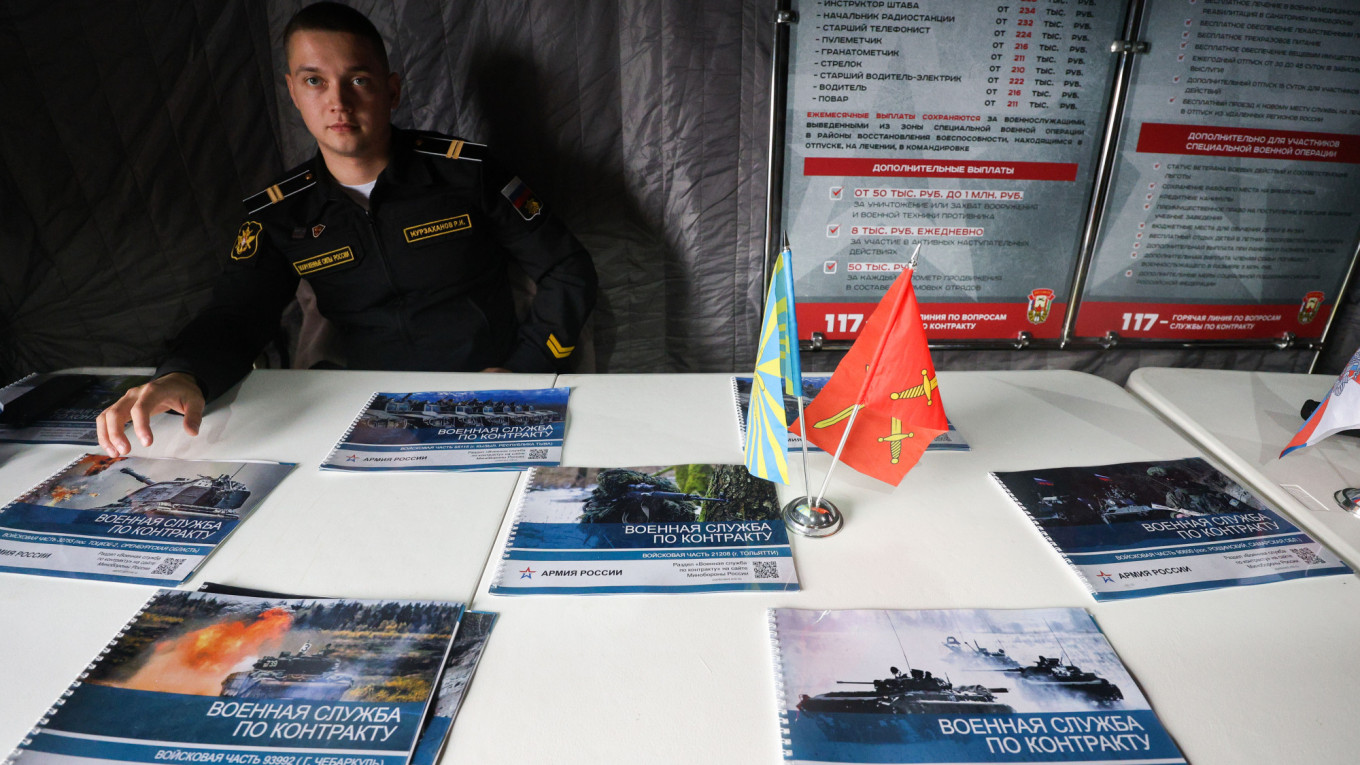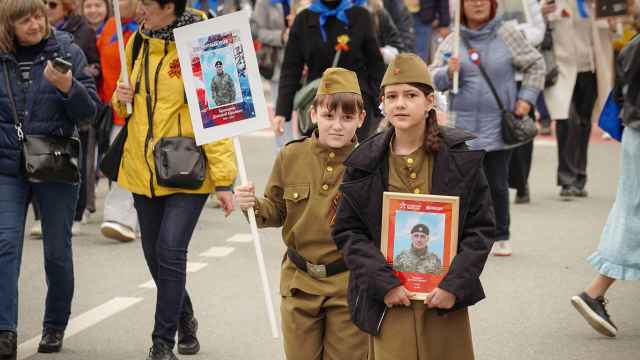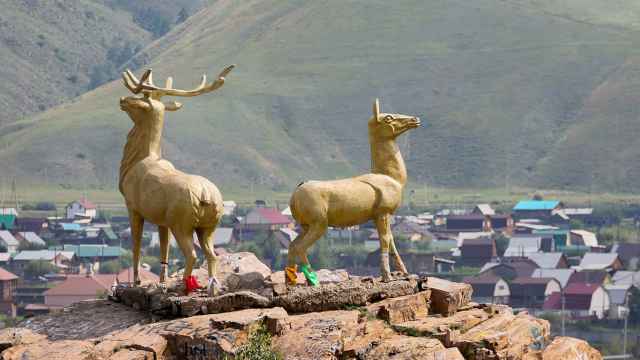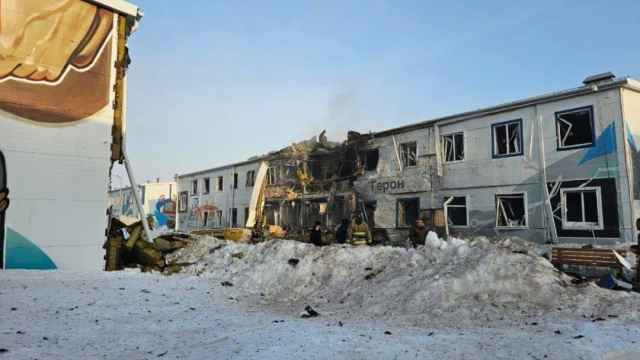Hello and welcome to Regions Calling, your guide to developments beyond the Russian capital from The Moscow Times.
Since the February 2022 invasion of Ukraine, Russia’s regions and ethnic republics have borne a disproportionate share of the burden in supplying manpower for the front lines. Military recruitment numbers became a key performance indicator for governors and heads of republics seeking to prove their efficiency and loyalty to the Kremlin.
This competition has come at a great financial cost to the regions themselves. Local authorities have been forced to allocate ever-increasing amounts of their budgets to military payouts in an attempt to outbid their neighbors and attract potential recruits from other regions of Russia and even foreign countries.
Earlier this month, however, at least three regions suddenly decreased the rewards offered for signing a military contract.
In this edition of Regions Calling, we will look at the possible reasons behind this change and examine new trends in military recruitment strategies used by regions, as well as the latest data on Russia’s war losses.
But first, here is what else happened in Russia’s regions over the past two weeks:
The Headlines
Some 500 people gathered in the Pacific port city of Vladivostok to protest a government-mandated fee increase for end-of-life vehicles. The event was the largest protest in the regional capital of 600,000 people since the 2021 rallies in support of late Kremlin critic Alexei Navalny.
The fee hike was expected to increase the price of at least half of all vehicles imported to Russia by upwards of 800,000 rubles ($10,000) from Nov. 1, analysts said. Amid widespread public discontent with the change, Deputy Prime Minister Denis Manturov on Tuesday ordered the Industry and Trade Ministry to delay the hikes for another month.
In the republic of Altai, activist and human rights defender Aruna Arna was sent to a pre-trial detention center on Friday after a local court found her guilty of violating parole. Arna, a 39-year-old mother of three, was among the leaders of ongoing protests against a controversial local self-government reform. You can read more about Arna and the current situation in the southern Siberian republic in the previous edition of Regions Calling.
Authorities in the republic of Sakha (Yakutia), Russia’s largest region, have put forward a set of amendments to its constitution aimed at further strengthening the power of its Kremlin-aligned head.
If approved, the amendments would give Sakha head Aysen Nikolayev nearly unlimited control over the republic’s vast natural resource deposits, further reduce the already limited autonomy of its municipalities and deny residents the constitutionally guaranteed access to free secondary education.
The amendments have been strongly criticized by independent activists in Sakha and in exile, as well as by members of Russia’s so-called “systemic opposition.”
Meanwhile, an online vote for the design of Russia’s new 500-ruble (about $5) note dedicated to the North Caucasus Federal District sparked a spat between Chechen officials and pro-war bloggers. Read all about the controversial vote (and the avalanche of memes that it inspired) here.
The Spotlight
‘Troubling Sign’: Why Russian Regions Are Spending Less Money on War Recruits
Authorities in Russia’s republic of Tatarstan decreased a one-time monetary reward for signing a contract with the Russian army more than sixfold this month, from a record amount of 2.7 million rubles ($34,000) offered to recruits since August to just 400,000 rubles ($5,000).
While the earlier payment hikes had been trumpeted with ads in state-linked media, the latest decrease went unannounced, and was instead discovered by RFE/RL’s Volga-Ural service Idel.Realii.
Tatarstan’s neighboring republics of Chuvashia and Mari El tacitly followed suit, cutting payments from regional budgets to 400,000 rubles from 2.1 million and 2.6 million, respectively.
“There have been several other such cases since the beginning of this year,” said researcher Maria Vyushkova, including in the Belgorod and the Yamal-Nenets autonomous district.
“It was done simply because regional budgets aren't bottomless,” explained Vyushkova, the leading researcher of regional and ethnic disparities in Russia’s war casualties.
‘Exploiting desperation’
With military service offering enlistment bonuses and wages far higher than the median regional salary, money is often the decisive factor for men choosing to aid Russia’s invasion of Ukraine.
A decree signed by President Vladimir Putin last year requires all regions to pay soldiers signing a contract to fight in Ukraine a minimum bonus of 400,000 rubles, with an additional 400,000 paid from the federal budget.
“The actual average salary in Buryatia is around $600. [Buryatia’s head] Alexei Tsydenov is ready to pay $12,700 upfront…to people invited to die in this war,” said Anna Zueva, an independent journalist from the Siberian republic of Buryatia.
Buryatia, home to fewer than 1 million people, ranks among the top Russian regions in war casualties per 10,000 working-age men. The southern Siberian republic is also among the top 10 Russian regions in absolute casualties, with over 3,500 deaths confirmed by the BBC’s Russian service and the Mediazona news website.
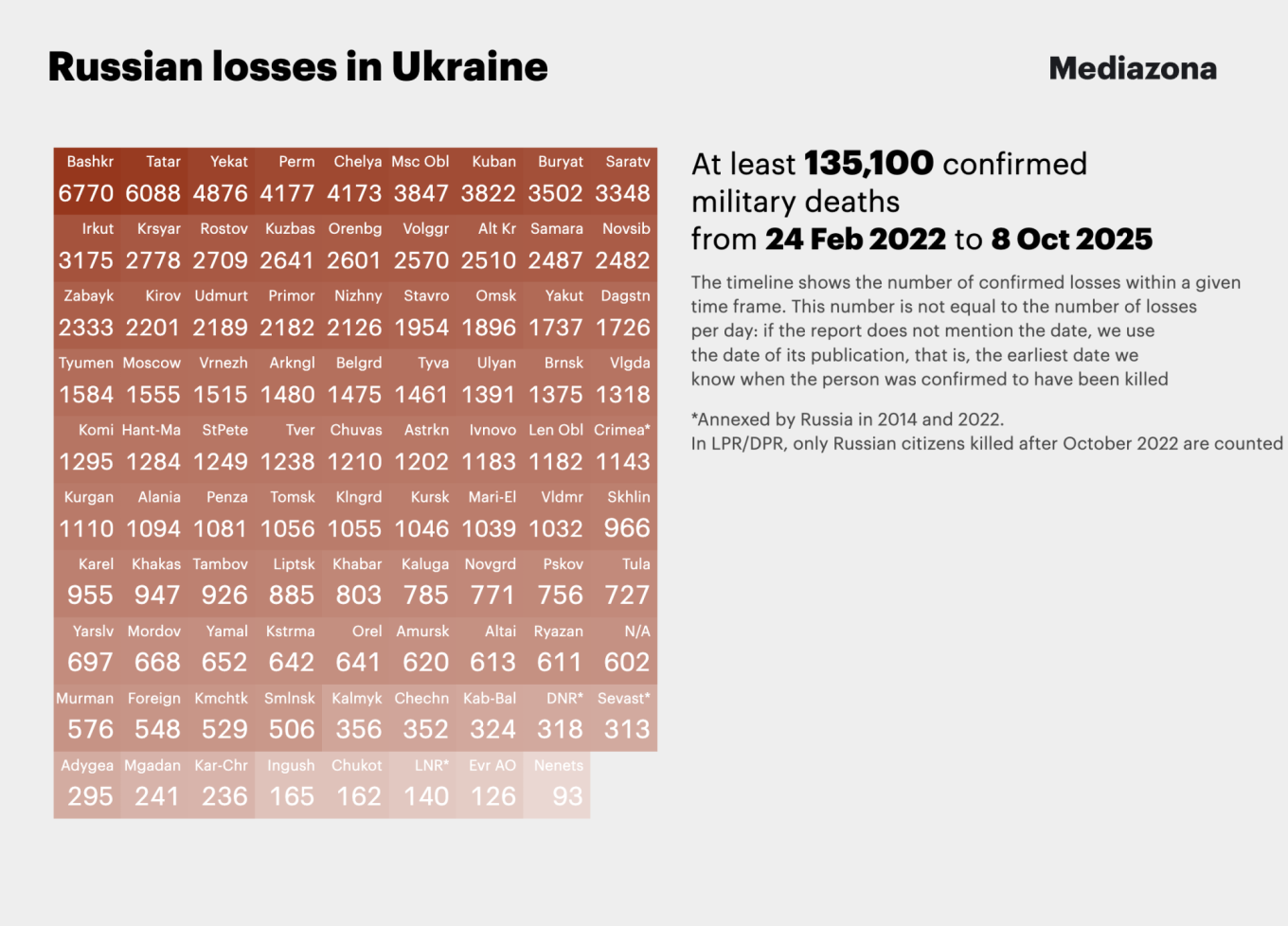
The scale of the 2022 partial mobilization campaign in Buryatia was unparalleled in Russia, according to Vyushkova’s analysis.
With 20.48 confirmed deaths per 10,000 working-age men among the mobilized, Buryatia’s casualty rate was nearly twice as high as that of the next region, Tyva.
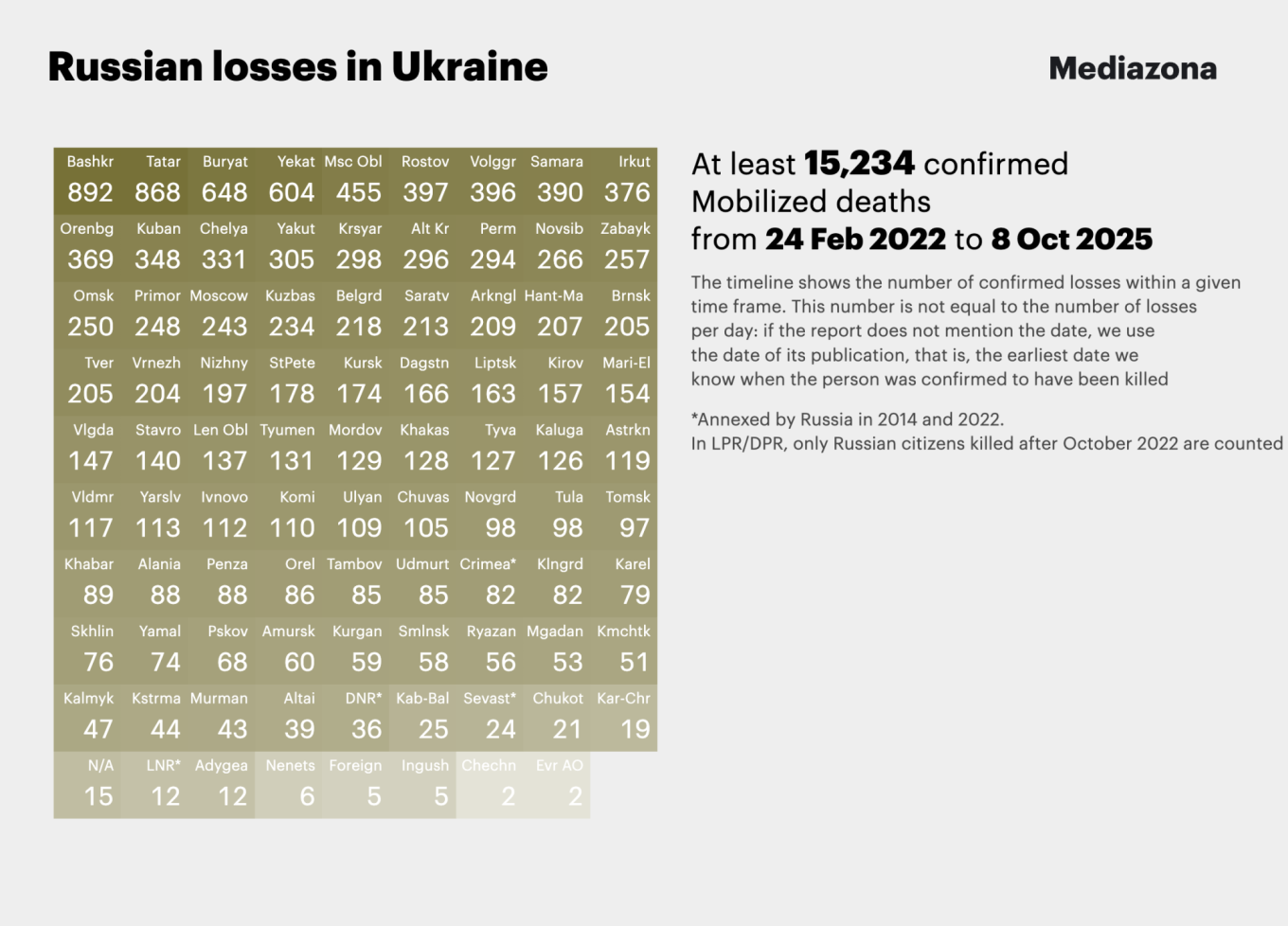
In April, Buryatia bumped its enlistment payments from 1 to 1.6 million rubles, including 1 million from the regional budget and “200,000 paid by local businesses.”
This month, the republic of Adygea as well as the Voronezh and Tyumen regions followed suit, with the latter offering 3 million rubles per military contract, the highest payment of any Russian region.
“Increasing government payouts is a way of exploiting economic desperation. People might not be lining up at military enlistment offices now, but financial incentives outweigh the fear of death for residents of poor regions with limited opportunities to earn money,” Zueva told The Moscow Times.
Vyushkova shared this sentiment.
“Greed and desperation are two very different incentives” for joining the military, she said.
‘Troubling sign’
While generous enlistment payments have been crucial in helping Russia replenish its front lines over nearly four years of war, coercion has played a no less important role.
The decision to lower one-time payments to recruits by regions like Tatarstan, which itself has one of the country’s highest casualty rates, is far from a signal that the authorities plan to slow down recruitment.
“It is a troubling sign that they might want to move toward using coercive methods instead of financial incentives,” said Vyushkova.
In their race to meet quotas set by Moscow, local officials have resorted to a wide range of recruitment tactics, including targeting labor migrants, homeless and unemployed men and even convicts.
The latest trend appears to be forcing men caught on minor offenses to sign a military contract under threat of maximum legal punishment, according to Vyushkova.
This scheme, she believes, is orchestrated extrajudicially by judges and state-appointed lawyers acting in collusion.
Similarly, Vyushkova suspects that regional authorities quietly lowered payments on purpose, hoping to trick men going to the war in search of financial gain.
“As soon as the military enlistment office’s doors close behind that man, he can somehow be pushed into signing the contract, even if he finds out the payment isn't that much,” said Vyushkova. “There are no rules or laws that work behind those doors.”
- “Russia Faces a Fraught Homecoming for Hundreds of Thousands of Ukraine War Veterans” by Anastasia Tenisheva
- “In Russia’s Sakha, a Fallen Conscript’s Family Searches for Justice on the State’s Terms” by Leyla Latypova
- “Extermination of Entire Nations’: Scientist Maria Vyushkova Counts Russia’s Indigenous War Dead” by Leyla Latypova
Photo of the week
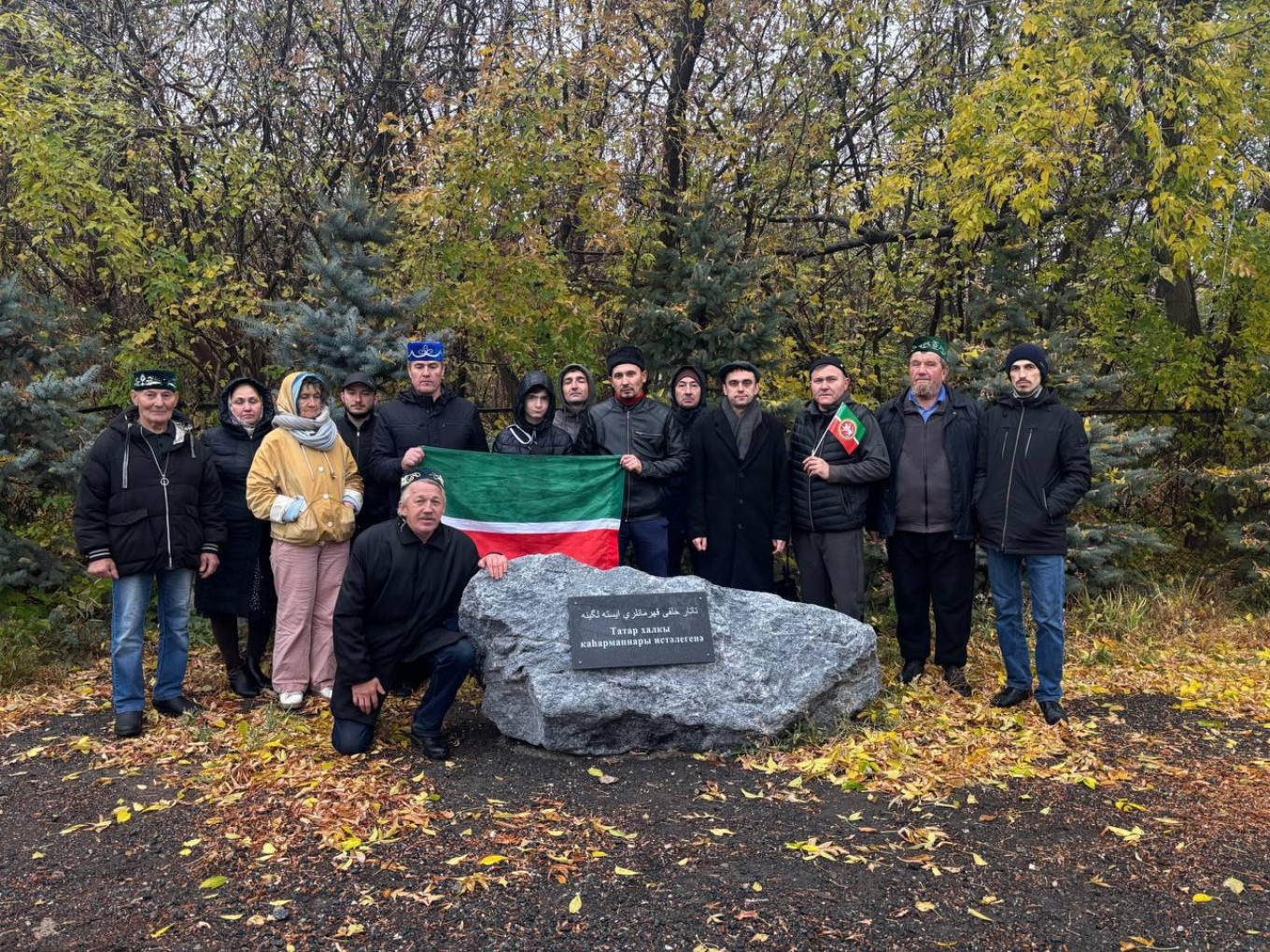
Activists pose with the flag of Tatarstan near the memorial stone for Tatar warriors killed during the siege of Kazan by Russian Tsar Ivan the Terrible’s forces in 1552.
Every year on Oct. 15, Volga Tatars worldwide observe Xäter köne (“Remembrance Day” in Tatar), a memorial date established after the fall of the Soviet Union to commemorate the defenders of the Tatar capital and the Tatars’ loss of independent statehood.
Culture & Entertainment
- TAKE a SEAT. MAKE a SHIFT, a Berlin-based exhibition and event series bringing together decolonial artists from Central and North Asia, the Caucasus and Eastern Europe, will hold a grand closing ceremony on Saturday. More information can be found here.
- New York University’s Jordan Center for the Advanced Study of Russia will host a symposium titled “Post-Soviet Indigeneity Between Research and Resistance” on Oct. 24 featuring prominent Indigenous academics and activists from Russia. For more information on attending the event in person or online, visit this link.
- On Oct. 29, Russian and post-Soviet diasporas worldwide will recite the names of Soviet terror victims during the annual “Returning the Names” marathon organized by the Memorial human rights group. Information on where the recitals will take place and how to take part in the event is available here.
- Tatar* Kiss, an exhibition showcasing works by several Indigenous artists from Russia, is open to the public at Vleeshal in Middelburg, Netherlands until Dec. 14. More information can be found here.
A Message from The Moscow Times:
Dear readers,
We are facing unprecedented challenges. Russia's Prosecutor General's Office has designated The Moscow Times as an "undesirable" organization, criminalizing our work and putting our staff at risk of prosecution. This follows our earlier unjust labeling as a "foreign agent."
These actions are direct attempts to silence independent journalism in Russia. The authorities claim our work "discredits the decisions of the Russian leadership." We see things differently: we strive to provide accurate, unbiased reporting on Russia.
We, the journalists of The Moscow Times, refuse to be silenced. But to continue our work, we need your help.
Your support, no matter how small, makes a world of difference. If you can, please support us monthly starting from just $2. It's quick to set up, and every contribution makes a significant impact.
By supporting The Moscow Times, you're defending open, independent journalism in the face of repression. Thank you for standing with us.
Remind me later.



